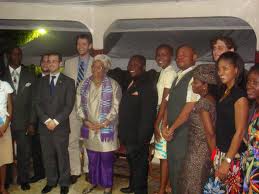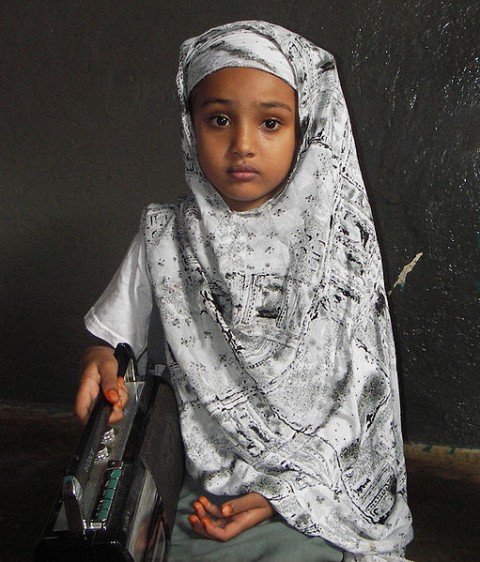by Seth Kaplan | Apr 24, 2012 | Economics and development
 One of the largest problems in fragile states is how the government operates. There is a enormous shortage of capable managers and executives to staff key organizations. And externally driven initiatives aimed at improving capacity generally fall far short of expectations.
One of the largest problems in fragile states is how the government operates. There is a enormous shortage of capable managers and executives to staff key organizations. And externally driven initiatives aimed at improving capacity generally fall far short of expectations.
Recruiting professionals from outside the country to work either in specific positions or as special assistants to senior officials is one of the best ways to fill immediate needs, transfer skills, and encourage highly qualified people to relocate permanently to the country. Focusing on young members of the diaspora–including at times diaspora from neighboring countries–increases the chance that individuals will be familiar with local culture and conditions and will be interested in staying longer-term. (more…)
by Seth Kaplan | Mar 12, 2012 | Conflict and security, Economics and development
Social cohesion is an underappreciated but crucial element in development, state building, and poverty reduction.
It is an especially important factor in determining whether a state is fragile or not. As I argued in Fixing Fragile States:
Two factors above all others decide how a country’s political, economic, and societal life evolves: a population’s capacity to cooperate (which depends, for the most part, on the level of social cohesion) and its ability to take advantage of a set of shared, productive institutions (especially informal institutions at the crucial early stages of development when formal institutions are usually feeble and ineffectual). . . . These two ingredients shape how a government interacts with its citizens; how officials, politicians, and businesspeople behave; and how effective foreign efforts to upgrade governance will be. Together with the set of policies adopted by the government, they make up the three major determinants of a country’s capacity to advance.
Fragile states are deficient in both these areas. And the combination of political identity fragmentation and weak national institutions works in a vicious cycle that severely undermines the legitimacy of the state, leading to political orders that are highly unstable and hard to reform.
But social cohesion has rarely attracted the attention it deserves from the development community. Dependent on sociopolitical factors that are hard to measure, analyze, and understand, it holds no prominent place in any international agency’s programming. Like almost everything related to the “software” of how states work, it is all too easily ignored.
This may be changing at least at the margins—in conferences and reports. The World Bank, for instance, is using it to discuss jobs in its forthcoming World Development Report. And the OECD recently published Perspectives on Global Development 2012: Social Cohesion in a Shifting World.
This is progress of a sort, but these conferences and reports are missing something important. Instead of seeing social cohesion as a “complex cultural, psychological and social phenomenon,” as Duncan Green put it on his blog earlier this year, they look at economic issues and technocratic solutions. The OECD report, for instance, promotes redistribution via progressive tax reform and increased and more pro-poor public spending; investment in education; protecting poor people against volatility via social protection and improved labor market institutions such as the minimum wage.
There is nothing particularly wrong with most of this agenda, but it does not get to the heart of the matter. A country with high levels of social cohesion would likely have a leadership with an interest in introducing programs that helped the poor. A country that had little social cohesion would likely have a leadership that had little interest in helping the poor. These proposals matter far less than trying to figure out what affects elite attitudes and what might be done to make elites feel that the poor is “one of us.” (more…)
by Seth Kaplan | Feb 27, 2012 | Africa, Conflict and security, Cooperation and coherence

In the aftermath of the conference in London on Somalia, I offer a wrap-up of the best articles and books to read on the country.
In the past week, there has been a number of excellent pieces on what the international community has done wrong in the past, and how it might do better going forward.
In general, they all suggest that the focus should be on what is working—in places such as Somaliland, Puntland, and Galmudug—rather than on any foreign blueprint for success.
Past initiatives have repeatedly attempted to impose a centralized bureaucratic governing structure on the country, a structure ill-suited to Somali society. Such efforts have never been effective and have only aggravated domestic tensions. (more…)
 One of the largest problems in fragile states is how the government operates. There is a enormous shortage of capable managers and executives to staff key organizations. And externally driven initiatives aimed at improving capacity generally fall far short of expectations.
One of the largest problems in fragile states is how the government operates. There is a enormous shortage of capable managers and executives to staff key organizations. And externally driven initiatives aimed at improving capacity generally fall far short of expectations.
